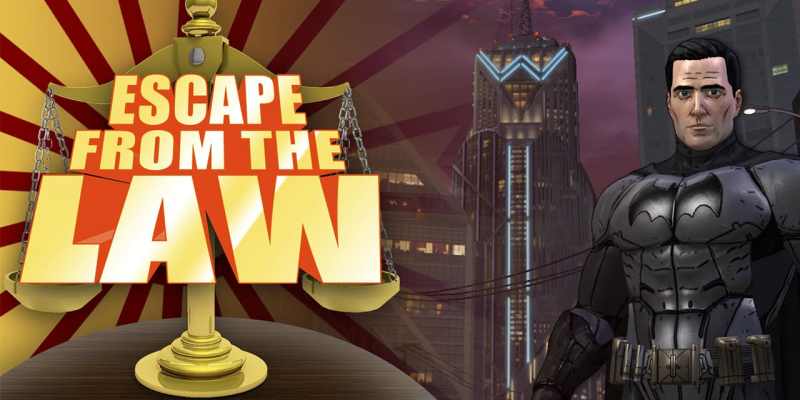One of the strangest quirks of the law is that corporations are “legal persons.” Corporations and other business organizations can sue and be sued, they can be prosecuted for crimes, they have tax obligations, and they have constitutional rights. This leads to an interesting question — if “corporations are people,” can a corporation be a superhero?
In some respects, the answer is an unqualified yes. To name just a few obvious examples, the Red Cross spends billions of dollars each year on disaster relief, international aid, and community services; the Bill and Melinda Gates Foundation spends billions of dollars on international health relief and education initiatives; and the National Domestic Violence Hotline provides assistance to hundreds of thousands of people each year. But it’s not just disaster relief and humanitarian assistance — there are plenty of corporations who perform more “traditional” superhero activities, like fighting crime or going on patrol. (Although, the most prominent superheroes provide substantial humanitarian support too. Superman fought domestic violence, political corruption, and false convictions from his first appearance.)
But there’s more to being a superhero than performing heroic acts. When most people think about what makes a superhero, they identify a constellation of traits and tropes, including superpowers, secret identities, supervillains, and vigilantism. How do corporations fare when stacked up against those ideas? Pretty well, it turns out. But let’s see why!

Superpowers
Superpowers are probably the most straightforward category to evaluate. Since corporations aren’t physical entities, they cannot have superpowers in the traditional sense — a corporation cannot literally save a cat from a tree, nor can it fight aliens or stop a bomb from detonating. A business entity’s power comes from the resources it leverages and the organizations it maintains — it’s the power to affect the world. When viewed through this lens, a superhero corporation can stack up against most superheroes.
It is said that Superman has the strength of 10 men (quite the understatement, to be fair). A corporation, on the other hand, can hire thousands of men. Reed Richards has super intelligence and is a great inventor. Even so, Apple, Bell Labs, or Google, with their veritable squadron of PhDs, have a combined intellect that can keep Reed Richards and the Fantastic Four on their toes. While it may be possible to identify a superhero that can outclass any conceivable business organization, the point remains that companies and corporations — even in the real world — can rival the strength, intellect, and power of the top-tier comic book heroes.
Vigilantism and Supervillains
According to the dictionary, a vigilante is “any person who takes the law into his or her own hands, as by avenging a crime.” When we think of vigilantes, we typically think of superheroes like Batman, Green Arrow, or the Punisher — people who are willing to break the law (to varying degrees) to dispense justice. Can corporations do this? Absolutely!
The most prominent example of corporate vigilantism is probably Uber. Uber is notorious for ignoring local laws by operating in jurisdictions where ride-sharing is illegal, all in the name of providing consumers with access to cheap and reliable transportation. Ironically, Uber’s disregard for the law (including labor laws) could also be used to characterize the company as a supervillain — but the same could be said (to varying degrees) for Batman, Green Arrow, or the Punisher, who routinely maim or even kill criminals without regard for their rights. As usual, justice is in the eye of the beholder.
Outside of Uber, several companies have started to implement a lighter form of vigilantism where they dispense justice not by breaking laws, but by using their corporate influence to punish individuals. For example, PayPal recently stopped processing transactions from customers it deemed to have hateful political views. This may not be the same as beating someone up, but as entities who trade in money and commerce, it amounts to the corporate version of the same thing, and results in the same kind of philosophical debate: Who is PayPal to decide what views are “right” and “wrong”? PayPal shouldn’t take justice into its own hands — that kind of punishment should be left to the government.

Secret Identities
This is probably the most interesting topic of the group. When it comes to superheroes, there are three components to a secret identity: a “normal” identity (e.g., Clark Kent, Bruce Wayne, Peter Parker), a “secret” or superhero identity (e.g., Superman, Batman, Spider-Man), and a connection showing that the two identities are actually the same person.
These requirements make complete sense in the context of specific people. Clark Kent is Superman. How do we know? They occupy the same physical body. If we were to watch, we would be able to see Clark Kent transition back and forth into Superman. But corporations aren’t physical things, and they don’t transform.
But when it comes to corporations, the lack of physicality actually works to the benefit of secret identities. That’s because, without an objective, physical thing to track, it is much easier for organizations to hide their actions and identities. As a result, corporate forms are susceptible to fraud and abuse.
As an example, suppose you enter into a contract with LexCorp, a multi-billion dollar corporation. LexCorp agrees to pay you $1 million for a Kryptonite drone. You deliver the drone on schedule, but LexCorp claims it doesn’t have the money to pay you. What happened? LexCorp opened a new company, LexInc, and transferred all of LexCorp’s assets to the new company. Because your contract was with LexCorp, rather than LexInc, the new company doesn’t owe you anything, and the old company has nothing to give.

These kinds of corporate shell games are not uncommon. As a result, courts have developed a robust framework to determine whether two business organizations are the same or whether they are “alter egos.” The framework is relatively straightforward. Among other things, courts consider whether the two companies have the same owners, whether recognizing corporate independence would lead to fraud or injustice, whether the two entities observe corporate formalities, and whether the two entities have intermingled finances. In the case of LexCorp and LexInc, all of those factors would support a finding that the two companies really were the same, which would lead to a ruling that LexInc is required to pay you your $1 million.
So that takes care of the first step — a company can have a second identity. That brings us to the next question: Can that identity be secret? When it comes to business organizations, secrecy is challenging. Whereas a physical person can create an alternate identity by putting on a costume and mask, a company or corporation must register with a state government.
Fortunately, for our would-be corporate superhero, there are three states (Delaware, New Mexico, and Wyoming) that allow the creation of anonymous companies. While anonymous companies must still register with the state, they can keep the identity of their owners and operators confidential. This means, for example, that WayneTech could create and control Batman Incorporated, LLC in New Mexico and could place $50 million in the new company, without disclosing the connection between the two. Batman Incorporated would then be free to train and support Batmen around the world, knowing that villains would have a hard time identifying WayneTech as its parent company.
Of course, no secret identity is ironclad, and WayneTech might have to account for the money it allocated to Batman Inc. But with some additional layers of shell corporations, and some creative money laundering, it’s easy to see how a company could obscure its alter ego without too much difficulty — especially if it is not using its alter ego to perpetuate LexCorp-style fraud.

Conclusion
There are a lot of reasons why it seems strange to imagine corporations as superheroes. Setting aside the fact that corporations lack a physical form, the truth of the matter is that most corporations are formed in pursuit of money, rather than pursuit of justice. The few entities that were formed in pursuit of other goals, such as innovation or scientific discovery, often yield to profit motive and corporate evils as they grow larger.
For the first 15+ years of its existence, Google’s motto and principle code of conduct was “don’t be evil.” Yet, in recent years, that directive mysteriously disappeared. In a similar vein, while some corporations espouse the ideals of corporate responsibility and “giving back” to the community, it is often hard to view those assertions as genuine, when those very ideals can be viewed as yet another means to increase profit.
Despite these difficulties, there are two reasons why I believe there is value in thinking about business entities through this lens. First, in an abstract sense, none of the obstacles described above are unique to corporations. There are plenty of superheroes who lack physical form, or even traditional consciousness, as we understand it. As a relatively prominent example, Guardians of the Galaxy Vol. 2 focused on Ego, a celestial whose consciousness was distributed not just across a planet but across the entire galaxy. Likewise, Mogo from Green Lantern is a sentient planet, and Danny the Street is, for lack of a better term, a city block.
If these strange entities can be superheroes, then so can a corporation or LLC. Improper motive — including profit motive — is also no barrier to superhero status. After first obtaining his powers, Peter Parker used his abilities to earn fame and fortune as a wrestling star. Likewise, Luke Cage is known as a “Hero for Hire.” While many corporations might succumb to profit motive or corruption, most people would, too.

But there’s a more important reason why I believe it’s important to think about business entities as superheroes. The reason why the law grants personhood to corporations is because corporations are composed of and represent people — real, flesh-and-blood people, with interests, goals, and motivations. Corporations — and other business organizations — provide people with a means to work together and take collective action in a legally significant way.
When we acknowledge that corporations can be superheroes, what we’re really doing is recognizing the potential for good that lies in corporate society and acknowledging the power of collective action. An individual acting alone does not have much strength or power. But individuals acting together, through use of a corporate form, have the ability to change the world more than Batman ever could (and lest there be any doubt, Batman himself acknowledged this when he created Batman Incorporated).
At the same time, acknowledging the potential of corporate superheroes creates a standard against which to judge real-life corporations. The fact that corporations can be superheroes begs the question as to why so few companies are superheroes.
